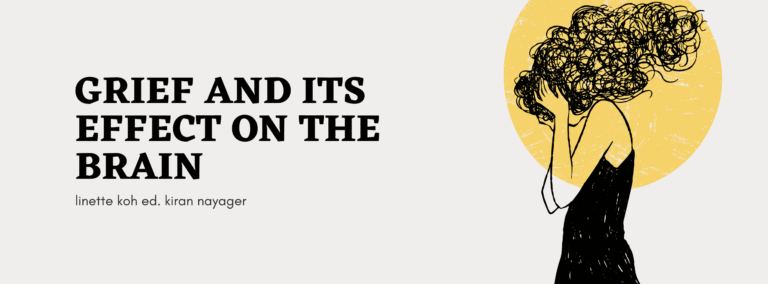
By Jacky Jiang; Edited by Nipuni Hapangama
We’re all familiar with the phrase ‘money can’t buy happiness’. Teachers, self-help books and even ‘successful’ entrepreneurs seem to love drilling the idea into our heads. There is, of course, validity in their words; they encourage us to pursue a career for fulfillment rather than monetary gain. However, if you think this phrase is entirely true, then you’re not spending your money right.
Take a moment to imagine holding a lottery ticket between your clammy fingers, watching the TV anxiously. You’ve already correctly guessed four numbers. A ball rolls down. “Number 29,” the lady announces. The final ball is chosen. Number 4. You look back at your ticket in disbelief. You’ve hit the jackpot of seven million dollars.
What would be running through your mind? Maybe you’d pay off your debts, buy a property, allow your parents to retire comfortably, go on a trip overseas and donate a portion to charity. Or, maybe you’d splash out on that Lamborghini you’ve always dreamed of, buy all the designer clothing that your favourite celebrities would wear and start questioning the authenticity of your relationships. The reality is, the vast majority of lottery winners end up doing the latter. They end up burning through their money very quickly, going into debt as they are no longer able to support their luxury lifestyle. Their lack of trust ruins their existing relationships and hinders their ability to create new ones.
Although these lottery winners present an extreme example, it is still true that money in general makes us selfish and can come between ourselves and others. Harvard Business School Professor Michael Norton suggests that this is because we are spending it in the wrong way, in particular, always on ourselves.
Norton conducted multiple studies on various populations spanning across the world in order to understand people’s spending habits, and they always boiled down to one thing: those who spend money on others have greater perceived happiness than those who spend it on themselves (Dunn, Aknin, & Norton, 2008). It did not matter whether it was a woman in Canada who bought her niece a stuffed animal, or a woman in Uganda who donated to a friend whose son needed malaria treatment; the result was the same. In other words, it really is the thought that counts.
So how can we apply this information to our day to day life?
Let’s first take a look at your own spending habits. What is it that you spend the most on? (In a time of economic crisis your spending habits may have changed, but consider what your spending would normally be like.) If you haven’t previously given much thought to your expenses, you might now realise that you are spending a good portion on materialistic goods.
Invest in Experiences
People often assume that buying materialistic goods will provide them with greater happiness than spending on experiences. After all, this leather jacket will last you YEARS longer than a quick 5 minute skydive, right? The thing is, although objects do last longer, they do not give us happiness for that long. Buying things rewards us with immediate gratification, but over time we adapt to its presence and are no longer enthralled as we were to begin with.
Experiences, on the other hand, spice life with variability and uncertainty and provide us with opportunities to learn and grow. Regardless of whether you had a perfect honeymoon in Bali or your car broke down during a road trip, you create lasting memories to look back on in the future with fondness. Perhaps more importantly, experiences often have a social aspect, serving to strengthen our relationships with others, which in turn brings us long lasting happiness and satisfaction.
Invest in Relationships
Tying in with the previous point, investing in relationships is extremely important to achieving long term happiness. We are social creatures by nature, so our overall wellbeing is intrinsically linked to our social interactions. Think about it – if you have no friends, no materialistic purchase will truly fill that void of friendship in your heart – so realise the importance of your relationships and cherish them. Norton’s studies even showed that sporting teams whose members spent on each other rather than themselves showed a significant improvement in performance and team chemistry. Thus, strengthen your bonds with others by planning a cute date to the beach, or surprising a friend with a thoughtful gift – support those you care about and it will inevitably be reciprocated.
Help those in need
Multiple studies have shown that being charitable, whether through financial means or otherwise, provides us with far greater satisfaction than if we were just to spend our money on ourselves. Obviously, we need to take care of ourselves and spend enough to live at least comfortably, but at some point, our increase in assets does not benefit us as much anymore – this is the law of diminishing returns. At this point, we should all consider being more generous as it not only benefits who we choose to give to, but also benefits ourselves as we innately become happy when we are able to make others happy.
Happiness and satisfaction are powerful feelings. Although they are subjective and difficult to measure, I believe that they are solely the greatest indicators of a successful or fulfilled life. So before you click ‘proceed to checkout’ on your next online purchase, I urge you to reconsider. Take up that dance class you’ve been thinking about (post-social distancing!), invite an old friend out for dinner or donate to a good cause, and you might find that money can indeed buy happiness.
References: Dunn, E. W., Aknin, L. B., & Norton, M. I. (2008). Spending Money on Others Promotes Happiness. Science, 319(5870), 1687-1688. doi:10.1126/science.1150952











